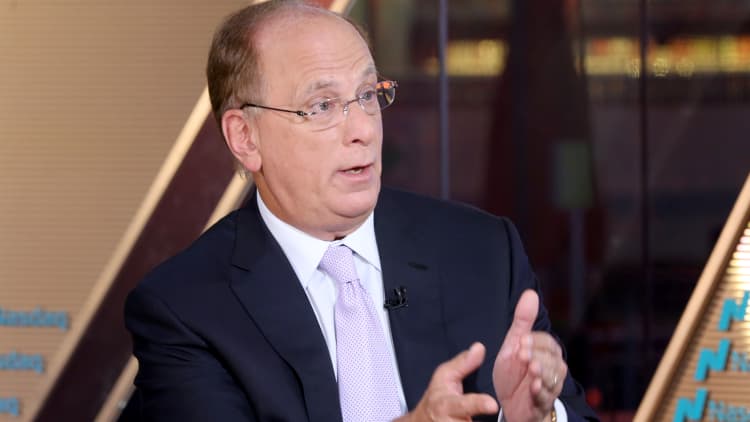
Socially conscious investing continues to gain momentum as Covid-19 and the destruction left in its wake spark interest in stakeholder capitalism — the idea that a public company's focus shouldn't only be generating profits to reward shareholders without taking the bigger picture into account.
With investors increasingly favoring ESG stock selection — when a company's environmental, social and governance policies are considered alongside more traditional financial metrics — more impact investing funds are launching to keep pace with demand.
Both the number of sustainability-focused index funds, and their assets, have doubled over the past three years, according to a report from Morningstar released Wednesday. The financial research firm said that as of the end of the second quarter 2020, there were 534 index funds focused on sustainability, overseeing a combined $250 billion. In the U.S., which has lagged Europe in ESG investing, assets in sustainable index funds have quadrupled in the last three years and now represent 20% of the total.
"There's a great realization today that ESG issues are investment issues," Alex Bryan, Morningstar's director of passive strategies research for North America, told CNBC. "They're issues that can affect the bottom line, and that may not always be something that comes to bear immediately. But it's something that I think more people are starting to understand is aligned with shareholder value maximization," he said.
Actively managed ESG funds continue to attract the lion's share of dollars and represent a much larger portion of the sustainable investing landscape. Combined inflows into both active and passive ESG-focused funds reached $71.1 billion during the second quarter, pushing global assets under management above the $1 trillion mark for the first time.
In the U.S., 'a lot of runway for growth'
Sustainable index funds are growing in size, number and complexity, and Bryan said that despite the record inflows, there's "still a lot of runway," especially in the U.S., where these funds currently make up less than 1% of the overall market.
"They're still just a drop in the bucket compared to the full landscape of all index funds," he said.
For example, the Vanguard Total Stock Market Index Fund, a traditional U.S. stock market investment portfolio, is on pace to hit $1 trillion in assets itself this year.
Bryan pointed to the coming $30 trillion wealth transfer from baby boomers to their millennial and Gen X children as one of the factors that will spur long-term growth in sustainable funds.
According to a recent survey conducted by Morgan Stanley's Institute for Sustainable Investing, nearly 95% of millennials are interested in sustainable investing, while 75% believe that their investment decisions could impact climate change policy.
Covid-19 has also acted as a turning points of sorts. Not only has the global pandemic underlined the importance of resilient business models, but it's shown that how companies treat all their stakeholders — including employees and customers — can impact the bottom line.
"The Covid-19 pandemic and movement for racial justice in the U.S. have kept attention on social issues, including workplace safety and diversity, and have likely added to interest in sustainable funds," Morningstar's report said.
Another reason sustainable funds are attracting record inflows is that they've dispelled the idea that there's a financial trade-off for investors who want to focus on ESG. During the second quarter, 56% of sustainable funds ranked in the top half of their Morningstar category. Year-to-date, that number jumps to 72%.
"The things that are happening this year have accelerated some of the longer-term trends, but we're still in early innings, at least in the U.S.," Bryan said.

ESG buzz and Wall Street debate
"ESG" has become a buzzword on Wall Street — Morgan Stanley recently said it will be the defining acronym of the next decade — and the investing approach is not without its critics. Some argue that it's merely jargon and doesn't actually move the needle on the biggest issues facing the world.
There's also no uniform way to track a company's ESG metrics, especially in the U.S., where issues such as diversity and pay practices do not have to be publicly disclosed. Additionally, there are many approaches to ESG investing, which means that funds can have very different practices. Some might exclusively invest in clean energy or companies that have a woman on their board of directors, while others might essentially track the S&P 500 but adjust their component weightings based on a company's ESG score.
"There is currently no standard definition for sustainability, which increases investors' due diligence burden and the risk that a fund will not meet investors' expectations," Morningstar's report said. "It is imperative to research these funds before jumping into them."






